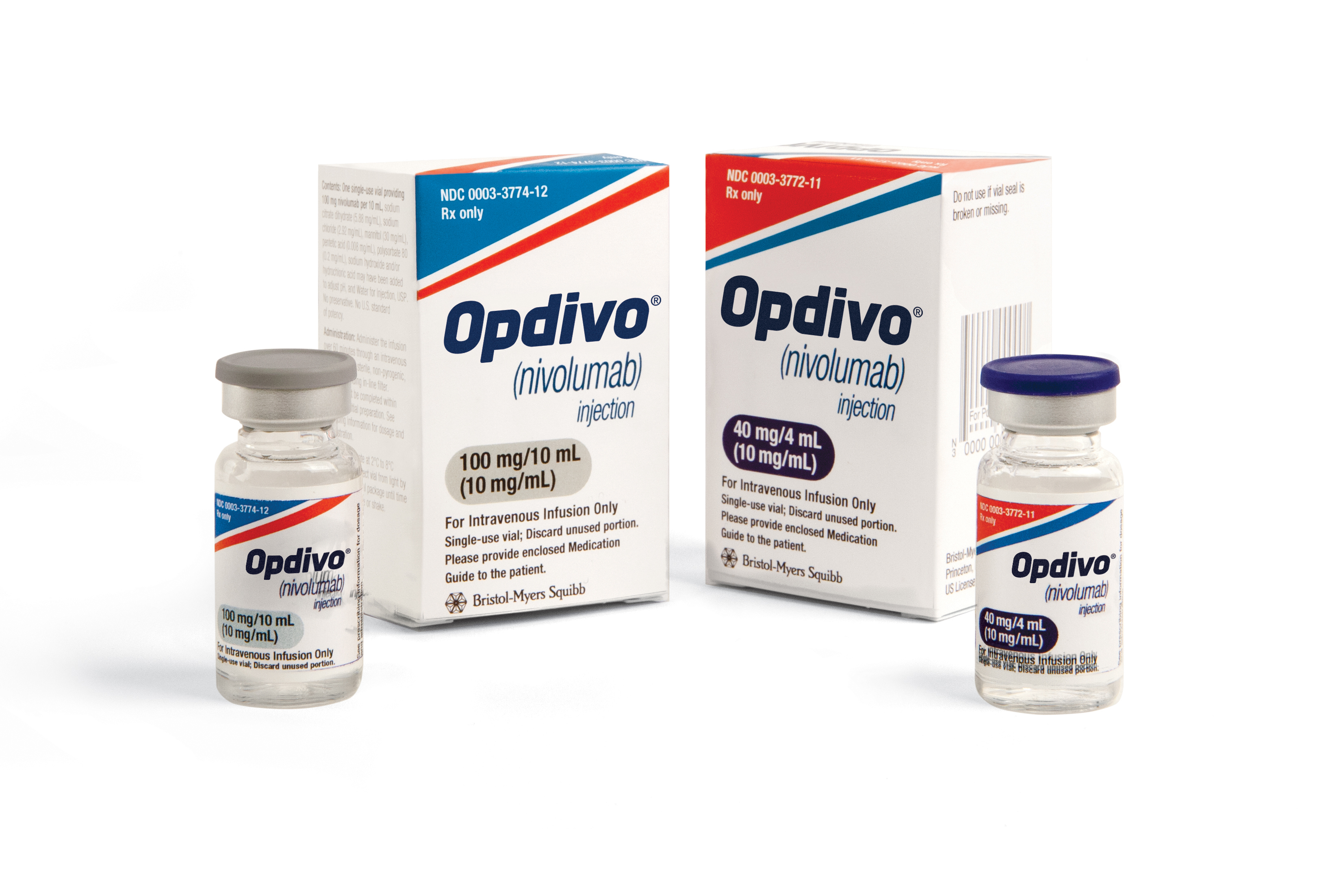BMS claims first EU okay for adjuvant oesophageal cancer immunotherapy

Bristol-Myers Squibb is in a battle with Merck & Co for position in the upper gastrointestinal cancer immunotherapy market, and has just reinforced its position with an EU approval in the post-surgery (adjuvant) setting.
The European Commission has approved Opdivo (nivolumab) as the first-ever adjuvant immunotherapy for patients with oesophageal or gastroesophageal junction (GEJ) cancer, who have had surgery to remove the tumour after chemoradiotherapy to reduce its size, but still have some residual cancer cells.
Giving Opdivo in the adjuvant setting was shown to double the time that patients went without disease recurrence or dying compared to placebo in the CheckMate-577 study – and the drug now becomes the first alternative to the current "watch and wait" strategy for patients with these aggressive tumour types.
In the study, disease-free survival (DFS) was 22.4 months with Opdivo, which compared to 11 months in the placebo group, and Opdivo also reduced the risk of disease recurrence or death by 31%.
The EU approval comes a few weeks after Opdivo secured approval in the US for the same indication, which in turn followed a green light from the FDA as a treatment for previously-untreated oesophageal and GEJ cancer patients in combination with chemotherapy.
Merck's rival drug Keytruda (pembrolizumab) already has both US and European approvals alongside chemotherapy as a first-line therapy in these cancers, so pipped BMS to that market, but isn't cleared for adjuvant use.
Analysts at GlobalData think that however that the war between the two drugs "will be judged in the adjuvant setting", making the latest approvals for Opdivo significant.
Opdivo has managed to enter a line of therapy in which Keytruda has not even been investigated, according to GlobalData's Sakis Paliouras, who reckons this will give BMS' drug "a significant first-mover advantage".
"Given that the adjuvant patient segment is unrestricted, compared to the narrow patient population [of Merck’s first-line indication], sales of Opdivo in the post-operative and metastatic setting are expected to surpass sales of Keytruda in the metastatic disease setting only," he said.
There are around 33,500 oesophageal or GEJ cancer patients in the five largest European markets – France, Germany, Italy, Spain and the UK.
Keytruda's remains the dominant force in the much larger non-small cell lung cancer (NSCLC) market of course, and that underpinned a 23% rise in sales to almost $4.2 billion in the second quarter of this year.
Opdivo, meanwhile, had lost momentum in the last few years after struggling to make headway in NSCLC and certain other cancer types, but a clutch of new indications have started to kick in, helping the drug make a 16% gain to $1.9 billion in the second quarter.
Securing approvals in the adjuvant setting is a key strategy for BMS, allowing it to position Opdivo as the first cancer immunotherapy option to be considered for treatment.
It also has approval of the drug as an adjuvant therapy for skin cancer melanoma, and also has positive clinical results in NSCLC and bladder cancer, with an FDA decision on the latter use scheduled for September.













